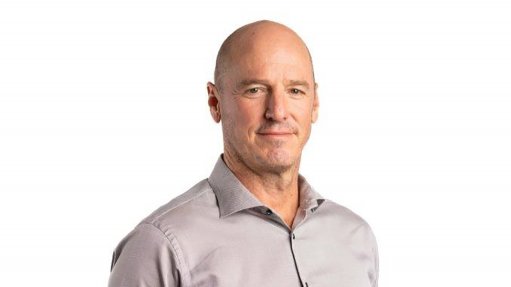Energy expert and deputy president of the Institution of Chemical Engineers (IChemE), professor Geoff Maitland, is urging governments to show collective leadership and commit resources to defeat the damage being caused by climate change.
This article has been supplied as a media statement and is not written by Creamer Media. It may be available only for a limited time on this website.
Professor Maitland’s comments follow publication of the Intergovernmental Panel on Climate Change’s (IPCC) third report: Climate Change 2014:
Mitigation of Climate Change1, which has called for a major shift towards renewable energy and increase the use of natural gas to help bridge the transition away from fossil fuels.
However, Maitland estimates that – taking a realistic view of the rate at which renewable energies can be developed and implemented at large-scale – fossil fuels will continue to provide around half of the world’s energy supply by 2050, and it will take a further 25 years before fossil fuels are fully replaced by low carbon, renewable energies.
Maitland said: “Many governments do have plans stretching decades ahead for the reduction of carbon emissions. These address both increases in the contribution of renewable sources of energy and reductions in carbon emissions from the continued use of fossil fuels.
“However, it is the speed of implementation of these measures that is a major cause for concern. The IPCC is saying that it is essential for governments to accelerate these processes if we are to combat effectively the hidden enemy of climate change.
“Renewable energy currently provides around 14 per cent of our needs. To move to 100 per cent by 2075 is not going to be achieved without sustained political will and resources.”
Maitland – a professor of energy engineering at Imperial College London and a Fellow of IChemE, Royal Society of Chemistry, Energy Institute and the Royal Academy of Engineering, continued:
“Waiting for renewable energies to take over will not cut emissions quickly enough to meet the target of restricting the mean global temperature rise to 2oC. There is good evidence to support a greater emphasis towards using natural gas. In the US, the growth in shale gas has reduced the rate of increase in CO2 emissions to around a third of their previous levels.2
“In the meantime, we have to abate greenhouse gases from existing fossil fuel energy sources much more rapidly than we are at present. Carbon Capture and Storage (CCS) is a solution, but will again need leadership and resources to help establish an estimated 3,200 CCS facilities required worldwide over the next 35 years to remove the necessary levels of CO2 from the atmosphere.”
Maitland continued: “The IPCC’s three reports have made the clearest and strongest case yet of the damage we are doing to our planet and the rapid action needed to prevent this becoming catastrophic. The good news is that engineers, working together, have the potential solutions.
“Hurdles remain. Without government support there is a limit to which the rate of technology development for CCS and of these new sources of energy can be delivered to the market place in the quantities needed to meet global demand, whilst capping CO2 emissions at acceptable levels. Inevitably, demand will increase further.
“Communication too must be addressed. The public perception that conventional cheap energy can continue is clearly wrong when issues of climate change are factored in.
“There is also the question of cost. New plants, especially gas, which include CCS, will need to be built. The costs of CCS may add 25 per cent to typical household bills. And further research and subsidies in renewable energy will be needed.
“However, the price of taking no action is immeasurable and unthinkable and we need to dispel the myths about continuing low energy prices compounded by political parties focussed on short-term, vote-winning electoral policies.”
Last week, Geoff Maitland emphasised the unique role of engineers – especially chemical engineers – to work together to lead the debate on climate change and provide long-term, sustainable solutions3.
The role of chemical engineers in the health, water, food and energy sectors is explored in IChemE’s latest technical strategy, Chemical Engineering Matters.
Comments
Press Office
Announcements
What's On
Subscribe to improve your user experience...
Option 1 (equivalent of R125 a month):
Receive a weekly copy of Creamer Media's Engineering News & Mining Weekly magazine
(print copy for those in South Africa and e-magazine for those outside of South Africa)
Receive daily email newsletters
Access to full search results
Access archive of magazine back copies
Access to Projects in Progress
Access to ONE Research Report of your choice in PDF format
Option 2 (equivalent of R375 a month):
All benefits from Option 1
PLUS
Access to Creamer Media's Research Channel Africa for ALL Research Reports, in PDF format, on various industrial and mining sectors
including Electricity; Water; Energy Transition; Hydrogen; Roads, Rail and Ports; Coal; Gold; Platinum; Battery Metals; etc.
Already a subscriber?
Forgotten your password?
Receive weekly copy of Creamer Media's Engineering News & Mining Weekly magazine (print copy for those in South Africa and e-magazine for those outside of South Africa)
➕
Recieve daily email newsletters
➕
Access to full search results
➕
Access archive of magazine back copies
➕
Access to Projects in Progress
➕
Access to ONE Research Report of your choice in PDF format
RESEARCH CHANNEL AFRICA
R4500 (equivalent of R375 a month)
SUBSCRIBEAll benefits from Option 1
➕
Access to Creamer Media's Research Channel Africa for ALL Research Reports on various industrial and mining sectors, in PDF format, including on:
Electricity
➕
Water
➕
Energy Transition
➕
Hydrogen
➕
Roads, Rail and Ports
➕
Coal
➕
Gold
➕
Platinum
➕
Battery Metals
➕
etc.
Receive all benefits from Option 1 or Option 2 delivered to numerous people at your company
➕
Multiple User names and Passwords for simultaneous log-ins
➕
Intranet integration access to all in your organisation


















